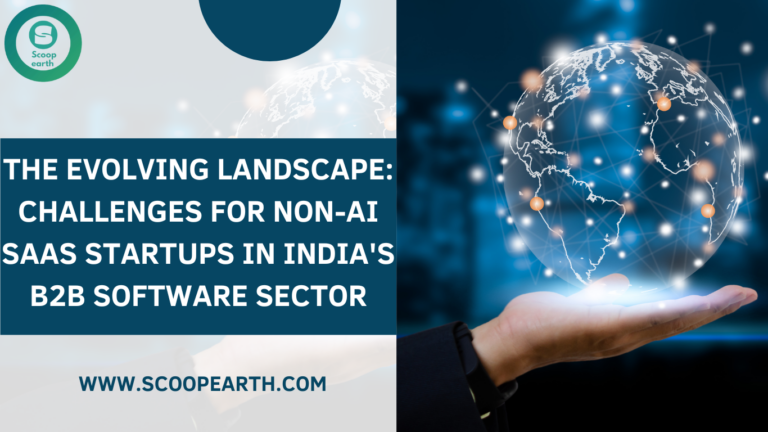A recent report issued on December 14 has signaled forthcoming challenges for Indian Business-to-Business (B2B) Software-as-a-Service (SaaS) startups not integrating Artificial Intelligence (AI), particularly generative AI, into their offerings. This revelation comes with the prediction of a shift in the funding environment, marking the end of an era characterized by easy access to capital.
The report emphasizes the need for non-AI SaaS startups to adapt and incorporate AI technologies, especially generative AI, to stay competitive in the evolving market. It anticipates that Series A investments, typically around $5 million, might experience a significant downturn and greater scrutiny on performance metrics. Large Language Models (LLMs) are forecasted to exert considerable influence, akin to the impact mobile operating systems had in 2009.
The assessment arrives at a time when investors are increasingly favoring SaaS AI firms. Generative AI, a transformative AI technology capable of producing diverse content types such as text, images, and audio based on input prompts, has gained traction. Several notable Gen AI SaaS startups have emerged from India, including Composio, Workhack, and Rapid Claims.
The expansion of Gen AI tools, like ChatGPT, has seen significant adoption, reflecting a rising demand for AI-driven solutions. According to a SaaSBoomi and McKinsey report, Indian Gen AI-based SaaS startups raised $590 million in funding by May 2023, more than doubling since 2021. The number of these startups has surged from around 18 in 2021 to approximately 60 by the second quarter of 2023, signifying a growing trend.
This transition underscores the importance of AI integration in the B2B SaaS sector to stay competitive and attract investment. The infusion of generative AI technologies offers unparalleled capabilities, transforming the way businesses generate content, respond to queries, and streamline operations. It’s becoming increasingly evident that AI-powered solutions provide a significant competitive edge in the market.
The shift in investor focus toward AI-centric startups reflects the recognition of AI’s potential to revolutionize various industries. Startups leveraging generative AI possess the ability to create innovative solutions and cater to evolving market demands, enhancing customer experiences and operational efficiencies.
For non-AI SaaS startups, the report’s findings serve as a call to action, urging them to pivot and embrace AI technologies to remain relevant and competitive. The integration of AI, particularly generative AI, into their offerings could be pivotal in securing funding and sustaining growth in a rapidly evolving market landscape.
The exponential growth of Gen AI-based SaaS startups in India signals a transformative wave in the tech ecosystem. As the number of these startups continues to rise, the narrative around technology innovation and business scalability is poised for a significant shift. Embracing AI technologies is not just a choice but a necessity for non-AI SaaS startups seeking to thrive in the competitive market terrain.
In conclusion, the emergence of generative AI as a driving force in the B2B SaaS landscape signifies a paradigm shift, shaping investment trends and market dynamics. Non-AI SaaS startups face the challenge of adapting to this changing landscape by integrating AI technologies to secure funding and remain competitive in the evolving market ecosystem.
Engineer | Content Writer
Want to be a catalyst for a positive change in the world
